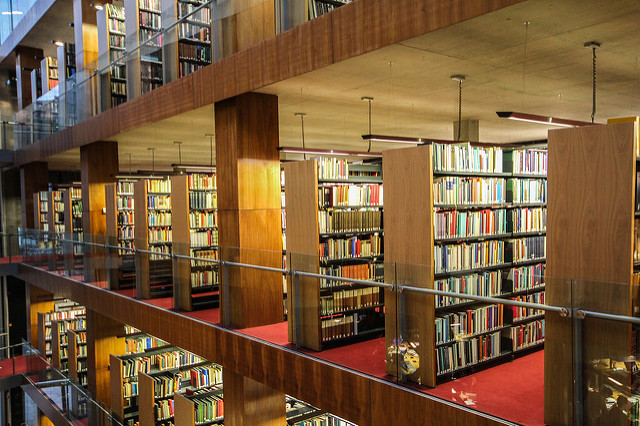New self-service checkout machines, set to be activated before students return to lectures on January 20th, have been installed in Trinity’s libraries to replace the old Fastlane machines.
The installation of the machines is part of a €350,000 project in the libraries that also saw over half a million books fitted with new microchips in a bid to improve security and allow staff to track them more easily.
The old Fastlane machines have been replaced in all of the libraries in a move that has also seen the installation of a new model in the John Stearne Medical Library in St James’s Hospital. Previously, the library did not have a self-service checkout machine.
The new checkout machines cannot be switched on until the security panels at the library’s entrances are replaced, as the two systems run concurrently. Speaking to The University Times, Peter Dudley, the head of reading room services and space, said it is expected that the checkout machines will be activated “this week or next”.
“We need to have it done as soon as possible, basically, before term starts so we have this week and next week while it’s quiet to get it done”, he said. “We’re just waiting on a couple of pieces to arrive and be delivered and then we’ll get it all set up. Then we just have a few finishing touches after that.”
The entrance to the Berkeley library is currently closed to facilitate the installation of new security panels.
The installation of the new checkout machines and security panels followed the completion of a large-scale “tagging project” for the open-shelf books in Trinity’s libraries. Some 550,000 books are now fitted with microchips, using a system called radio frequency ID, which will allow staff to track them more easily when large volumes of books are being moved around the libraries, or if books go missing.
Radio frequency ID will improve the security on collections, expand the range of self-service options available to library users and improve the user experience of borrowing and returning library materials.
“Security on the collections will be vastly improved because we’re replacing an old technology that was starting to fail”, Dudley said. “We’ve now got almost 100 per cent coverage in the modern libraries – what’s on the open shelf.”
Newly acquired books, such as those given to the library under its status as a “legal deposit” library, or books in the Santry stacks, will be also tagged.
In 2019, in response to overcrowding issues coming up to exams, the libraries controversially ran a campaign to prevent the practice of “desk hogging”. A team of students, mostly postgraduates, were employed to monitor desk spaces in the weeks before the Christmas exam period.
The monitors left notes on desks that appeared to be unoccupied but had possessions such as books and laptops on them, informing the “desk hogger” that if they did not reclaim the space within 60 minutes, their belongings would be removed.
In 2018, the library’s system for borrowing and renewing books from Trinity’s library underwent an extensive overhaul in a bid to make library books more accessible for students.
Undergraduate students can now borrow up to 10 general lending books at a time, for a period of four weeks before renewal. Undergraduate borrowing rights were previously limited to a maximum of four books at once, with a loan period of one week.







